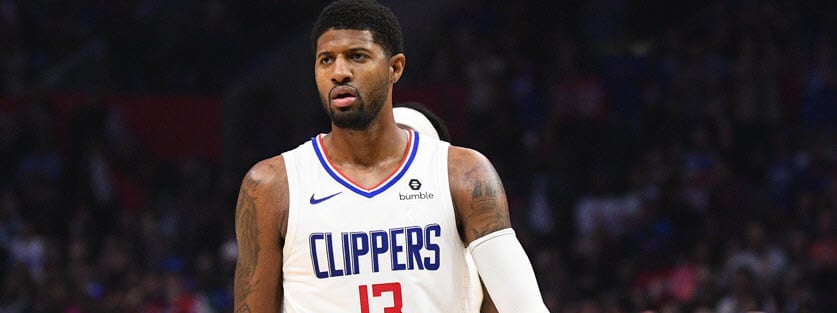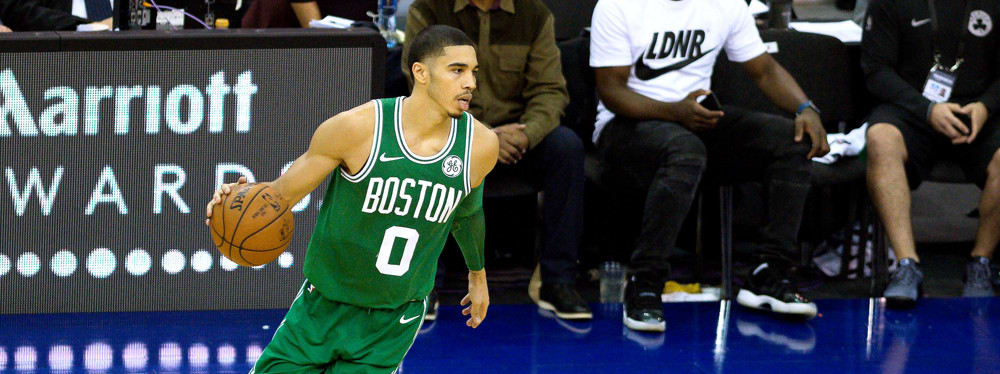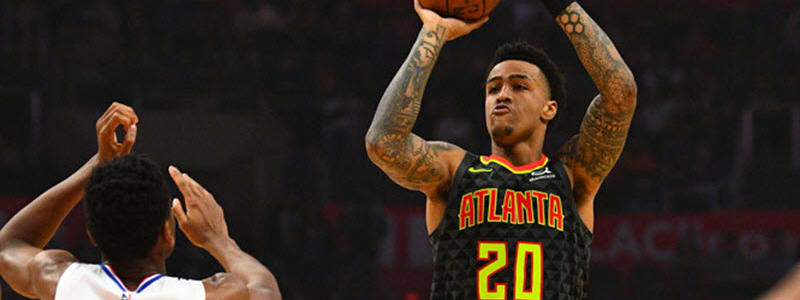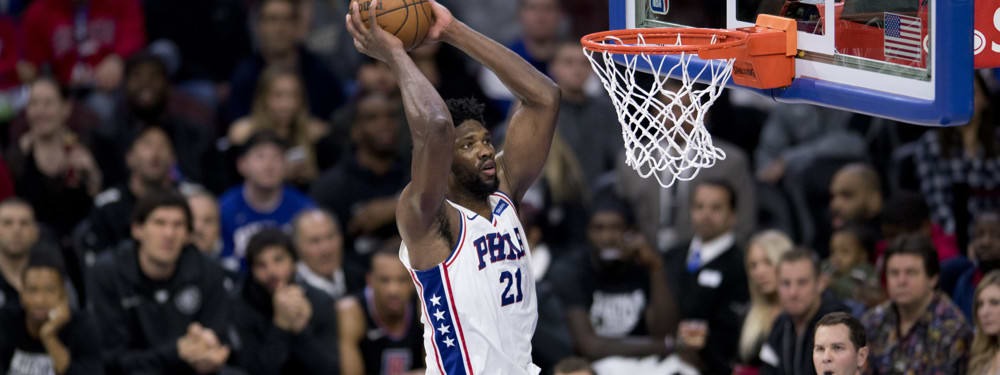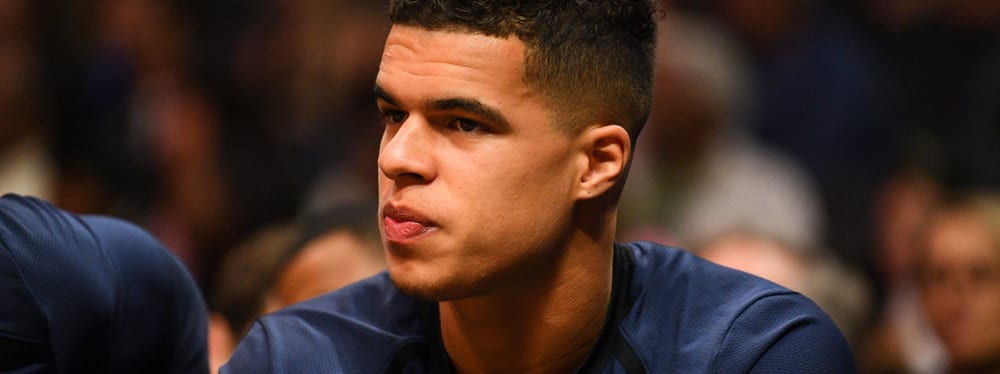Recent RotoWire Articles Featuring Evan Turner
See More
Turner was traded to the Hawks for Kent Bazemore in the offseason after a down year with the Trail Blazers. The Ohio State product appeared in 73 games and averaged 6.8 points (career-low), 4.5 rebounds and 3.9 assists across 22.0 minutes per tilt, mainly off the bench. He was a low-usage option for Portland throughout his tenure with the team, and he's likely to see a similar role with Atlanta. The Hawks are one of the youngest teams in the league and the core is comprised of first and second-year talent, with much of it on the wing. The Hawks added a smattering of veterans for balance and leadership, but it's clear the focus of this team is development. Turner will have a tough time finding minutes on the wing, competing with Cam Reddish, Kevin Huerter and De'Andre Hunter among others in what will be a crowded group. His ball-handling abilities may afford him playing time at point guard behind Trae Young, but even if he secures a regular role, Turner's overall value is minimal, making him a player you can safely leave undrafted in most formats.
Much of the top half of the Trail Blazers’ roster remains unchanged heading into next season, leaving Turner in a battle with Maurice Harkless for the starting small forward role. The 29-year-old’s numbers saw another downturn last season, the second consecutive campaign that’s occurred since his arrival from Boston following the 2015-16 season. Turner averaged a modest 8.2 points, 3.1 rebounds and 2.2 assists across 79 games (40 starts), although the news wasn't necessarily all bad. Turner’s overall shooting percentage saw a bump from 42.6 to 44.7 percent over the prior season. Additionally, he snapped a three-season streak of sub-30-percent three-point percentage tallies by draining 31.8 percent of his tries from distance, and he shot a career-best 85.0 percent from the free-throw line. However, given that he shares the floor with a trio of high-usage teammates in Damian Lillard, C.J. McCollum and Jusuf Nurkic, Turner put up only 7.3 shot attempts per contest, limiting his overall Fantasy utility. The Trail Blazers’ offense is once again expected to largely run through the aforementioned stars barring injury, which likely leaves Turner with a usage rate similar to the 15.6 percent he logged last season.
In the first year of a four-year, $70 million contract with the Trail Blazers, Turner had a disappointing showing overall. He shot 42.6 percent from the field -- down from 45.6 percent a season prior -- while also shooting a horrid 26.3 percent from the three-point line. He was typically tasked with providing the bench a reliable scorer, but the struggles with his shot really limited how much of an impact he had for both the Trail Blazers and for Fantasy owners in deeper leagues. Over 65 games, including 12 starts, Turner ended up averaging 9.0 points, 3.8 rebounds and 3.2 assists across 25.5 minutes, which translated to a drop off in production in nearly every category from his final season in Boston. The good news for Turner is he's currently the favorite to open training camp as the starting small forward. The Trail Blazers dealt Allen Crabbe to the Nets, providing less competition at the position, while also opening up even more minutes at shooting guard when C.J. McCollum isn't on the floor. Still, Turner hasn't shown much progress in recent years, so expectations can be relatively low moving forward. A huge jump in production shouldn't be expected, but he could see some minor gains if he locks in a starter's workload.
Turner has primarily worked as a starter since entering the league in 2010 as the No. 2 overall pick, but he proved much better suited for the sixth-man role the Celtics used him in during the 2015-16 season. With the ability to provide scoring, guard both wing spots and work as a ball handler and facilitator, Turner's versatility was a valued asset and allowed him to fit in seamlessly with just about any Celtics lineup. Even while coming off the bench for all but 12 of his 81 appearances, Turner received 28.0 minutes per game and delivered a full stat line of 10.5 points (on a career-best 45.6% shooting), 4.9 rebounds, 4.4 assists and 1.0 steal per game. The Celtics surely would have welcomed Turner back if the price was right, but the swingman was too expensive to retain after he agreed to a four-year, $70 million with the Trail Blazers. He'll have a chance to compete for the starting job at small forward with Allen Crabbe, who profiles as the better outside shooter of the two, but Turner's blend of skills may be preferred alongside the high-scoring backcourt duo of Damian Lillard and C.J. McCollum. Even if Crabbe ends up starting, it's not expected that Turner will see his playing time fall off in a significant way while he works as the Blazers' sixth man.
Last year, the versatile Turner proved to be a useful cog for creative coach Brad Stevens. Turner's point-forward skills were leveraged in all 82 games last year, and he averaged 28 minutes, 9.5 points, 5.1 rebounds, 1.0 steals, and 0.4 three-pointers per game. As he enters his sixth season, Turner could again start roughly 57 games at small forward or be a jack-of-all-trades sixth man award contender. Or, frankly, Turner could be quickly packaged in one of GM Danny Ainge's expected trades. As of late August, the Celtics have one more player than roster spots, and Turner's name has already come up in trade rumors. Last year's emergence of Jae Crowder and Jonas Jerebko, as well as the drafting of Terry Rozier, make Turner's playmaking skills less in demand. The future is still cloudy for Turner. He's a proven NBA contributor but may never shine as expected when he was the number two pick from the 2010 draft.
Turner split time between Indiana and Philadelphia, the team that drafted him second overall in 2010. The Sixers were holding out for more but eventually accepted the realities of the market and received a second-round draft pick and an expiring contract (Danny Granger's) that they bought out. Turner's playing time and reputation took a tumble with the Pacers, who for several reasons, did not extend a qualifying offer and let Turner become an unrestricted free agent. He signed a one-year deal with Boston for a portion of their mid-level exception. The storylines are that Turner is motivated to rehab his career; he's a low-risk/high-reward signing for Boston; and head coach Brad Stevens will have a positive impact (think Jordan Crawford in Boston last season). Turner has flaws, but he's a multi-category producer that averaged 17.4 points, 6.0 rebounds, 3.7 assists, and 1.0 steals in 35 minutes per game over 54 games with the Sixers last season. He's a ball-dominating wing player, who doesn't shoot well from the perimeter and can be distracted when not engaged. Now he joins a team that's looking to develop a few young wings/guards while already possessing a dominant ball-handler in Rajon Rondo. Turner will need to modify his game on a team that's still very much experimenting with combinations. The heady numbers Turner had with Philly are unlikely to be rediscovered, but there will be an opportunity for him in Boston. If he plays well early in the season in a limited role, that could prompt Boston to trade Jeff Green and create a larger load for Turner.
Anyone who has been paying attention to what's happened in Philly this offseason can see why big things might be in store for Turner in 2013-14. The Sixers have done a better job than any team positioning themselves for a shot at Andrew Wiggins in the 2014 NBA Draft. Philly dealt Jrue Holiday for an injured defense-only project at center, in Nerlens Noel. Rookie Michael Carter-Williams is going to start at point guard, and his backups are Royal Ivey and Tony Wroten, so Turner should handle the ball quite a bit. This won't be good in leagues that count turnovers, but one would expect his 4.3 assists per game average from last season to see a slight spike. In fact, his counting stats should be up across the board, with he and Thaddeus Young being the lone respectable NBA starters left on the roster. Of course, this will coincide with a dip in his already no-so-great 42 percent field-goal percentage. Turner was seventh among small forwards with 6.3 rebounds per game last season, so if your roster is guard-heavy after the first five or six rounds, he's a nice option to help make up some production there. He had 16 games with double-digit boards last season, which is pretty impressive considering Kevin Durant had 19 such games.
One of the big winners of the four-team Dwight Howard trade was Turner, who projects to ascend into a regular starting role following the trade of Andre Iguodala to the Nuggets. The second overall pick in the 2010 NBA Draft, Turner hasn’t received the same amount of fanfare as top pick John Wall, and doesn’t yet have a double-digit scoring season to his credit in his two years in the league. Still, he enters this season as one of the top sleeper candidates at shooting guard. Outside of perhaps Dwyane Wade and Kobe Bryant, there are few two-guards who can be triple-double threats on a given night, but Turner is one of them. In just 26.4 minutes per game last season, Turner averaged 9.4 points, 5.8 rebounds and 2.8 assists, including a 29-13-6 effort in the penultimate game against Milwaukee. He upped that production in the postseason, averaging 11.2 points, 7.5 rebounds and 2.5 assists over 13 games. With Turner expected to play over 30 minutes every night, he has a great chance at exceeding his numbers across all categories. One category that could benefit the most is Turner’s assist total, as he’ll now have a legitimate post presence to work with after Andrew Bynum was acquired in the Howard trade. Things are only looking up for the 23-year-old Turner, who could be a steal in the latter rounds of a fantasy draft.
A very athletic and all-around talent entering his second season, Taylor has worked extensively on his jump shot this offseason and coach Doug Collins is looking for major improvement from last year. He was drafted second overall in last year's draft and is still considered the backbone of the Sixers future. At 6-7, 205, Turner can cause matchup problems for opponents at shooting guard, and if his jump shot has truly improved, he should be able improve on his subpar rookie numbers ( 7.2 points, 3.9 rebounds, and 2.0 assists).
With the success of last year's rookie crop – this even despite a preseason injury to Blake Griffin, originally considered by many to be the only true difference-maker in the draft – one's forced to wonder exactly what heights this year's comparatively more talented group of first-years might reach. Second-overall pick Turner has an impressive resume, finishing his junior year at Ohio State with over 20 points per game, just under six assists, and – somewhat incredibly, for a wing of any size – 9.2 rebounds per game. His outside shooting might very well take some time to develop, if it does at all: Only about a tenth of Turner's shots were from behind the arc, and he hit those at less than a 40 percent clip. Despite the lack of range on his jumper, he still managed to record field goal percentages of over 50 in his last two years, owing predominantly to his good ball handling and skill in the open floor. With the quick Jrue Holiday running the point, freakishly athletic Andre Iguodala at the three, and undersized power forward in Thaddeus Young, it's hard to envision a scenario where coach Doug Collins doesn't attempt to improve on last year's slow-moving 91.6 possessions per game, only the 22nd fastest in the NBA. Turner is likely to get something close to starter's minutes right from the beginning. That said, the former Buckeye was one of the biggest disappointments of the Orlando summer league, averaging just 9.4 points on 33.3 percent shooting and more turnovers (3.4) than assists (2.8).
